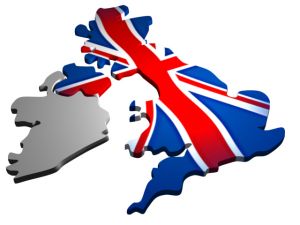

WIRED has run a series of articles about software patents. The problem is, the authors list is stuffed with law professors, this time Arti Rai. There is hardly ever any or enough representation for software professionals, as we last showed two days ago when European bureaucrats dealt with the subject of software patents (or unitary patent) in Europe. The activists from unitary-patent.eu, software professionals themselves, created widgets to encourage contacting politicians:
Future perfect? The JURI is out, and Europe waits ... - http://bit.ly/10gp8BG looks like the #unitarypatent trick is going through #swpats
Tonight [1900 to 2100 in Strasbourg, which works out at 1800 to 2000 GMT] following a special meeting of the JURI Committee of the European Parliament in Strasbourg, Commissioner Barnier is expected to announce a major breakthrough in the long-running saga of the creation of a Unitary European Patent and Unified Patent Court [on both of which this blog weblog has carried countless posts, mainly thanks to the efforts of Annsley]. The announcement will herald agreement between Council and the European Parliament leading to the adoption of new legislation to create the new system by April 2014.
If the rumours are true it could mean that, for European Union-based holders of patents, the place of domicile determines applicable national law while for non-EU patentees, in contrast, German national law would apply. If the UPC found itself obliged to apply different national laws in the case of unitary patents -- even though that application would be with uniform effect -- it appears that litigation might produce quite different results, depending on the domicile of the patentee. This in turn suggest that the product of the past few years' mammoth effort to produce unitary effect for patents would actually be, er, divergence.
The rumoured final texts thus seems to introduce a new level of complexity and fragmentation which those of us who dreamed of a single patent having single effect across a single market had never previously envisaged. Indeed, the potential for divergent jurisprudence may even be greater than would have been the case if the interference by the Court of Justice of the European Union (CJEU) -- which the compromise language was seeking to remedy -- had been allowed to occur in the first place.
But what about that curious new wording which seeks to avoid using the word “infringement”? Might it mean that UK national law would apply to both infringement and validity of a unitary patent owned by a British-based company such as BT or GSK, Dutch law for Philips’ unitary patents, Swedish law for Ericsson’s, Finnish law for Nokia’s and -- for all non-EU companies -- German national law?
The European Parliament's legal affairs committee welcomed a new proposal in order to create an E.U.-wide patent system during a Monday night meeting in Strasbourg. A majority voted in favor of a compromise that finally creates "an E.U. patent, after over 30 years of attempts, to support E.U. innovation and growth," the European Parliament said in a news release on Tuesday.
The new compromise text now respects the European Court of Justice's power to ensure consistent application of E.U. legislation, seems to be compatible with E.U. law and upholds the Parliament's rights to be involved if there are changes in the patent rules, said Bernard Rapkay, the member of the committee of legal affairs who is responsible for the draft legislation.